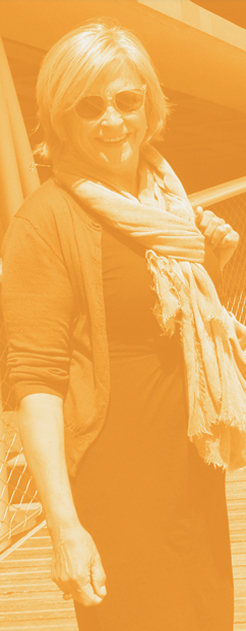Addiction to smartphone; try digital detoxing
Expired
You don’t have to be a work addict to be a slave to your smartphone — what Friedman calls “a reactive robot twitching every time you’re called upon.” When “you’re physically present but psychologically absent, you’re saying to the people who are with you that they are less important.” When it comes to digital detoxing, “there is no one solution that works for everyone.” So you should experiment. Here are some suggestions:
Hide your smartphone. There’s no reason to keep your smartphone within reach after the workday is done. “When you’re in the office, would you ever park your kid in the corner in case he needed something?” Blair Loy asks. “No. So why, when you’re at home at night with your family, would you have your work parked in the corner in case it needs you?” She points to studies that have shown how the mere presence of a phone between two people affects the quality and content of their conversation. “Communication is more shallow because we know it we can be interrupted by a ping or a buzz at any moment,” she says.
- Stop using your phone as a time-filler. Many of us, workaholics especially, turn to their phones “whenever there’s a free moment,” says Friedman — waiting in line at the office cafeteria, between conversations at a networking event, in the conference room before colleagues arrive. “You turn to your screen as a social crutch when you’re anxious” or bored, he says. Resist this impulse by doing something you enjoy or look forward to she says. At first it “might feel uncomfortable” — after all, reaching for your phone to fill the time can be a tough habit to break — but it will help you “be in the moment,” which will allow you to “stop and smell the flowers.”
- Model better manners at the office. “It doesn’t matter how normative it is in your organization” to be constantly tapping away on your phone when someone else is talking, Friedman says. “It’s disrespectful.” As a leader, you’re setting an example. Your team is learning about professionalism from you, and they will repeat these behaviors in front of clients and others. “You influence your environment,” he says.
Practice mindfulness
A growing body of evidence suggests that practicing nonjudgmental, present-moment awareness — also known as mindfulness — helps people become more mentally flexible and make better decisions. For people trying to break an addiction to work, mindfulness training can therefore be “extremely valuable,” according to Friedman. “It helps you get a sense of control and purpose and be conscious and deliberate about your choices.” Blair- Loy recommends meditation in particular. “It helps to take a few breaths before acting,” she says.
Prioritize your health — for the sake of others
As you shift priorities, also remember to take care of yourself. “You can’t work productively in a creative and nuanced way for more than a certain number of hours per day — and you certainly can’t do it without proper sleep, nutrition, and exercise,” says Blair-Loy. Numerous studies show that people who prioritize their health— eating well, taking breaks and time off, and getting plenty of exercise —have more energy and better focus. Of course, warns Friedman, “if you’re [only] thinking about these things out of your own interest, it’s not going to be sustainable.” You must also think about the other people — clients, friends, coworkers, and family — who count on you and your good health. “That mindset changes your motivation,” he says.
Principles to Remember
Do:
- Redefine personal success to be more about high-quality relationships, community engagement, and physical and spiritual wellness.
- Be deliberate about how you choose to spend your time and with whom you spend it.
- Try mindfulness.
Don’t:
- Go it alone — enlist colleagues, family, and friends to help you disengage.
- Automatically reach for your phone whenever you have a down moment.
- Skimp on exercise, sleep, and wholesome food.
Case Study #1: Seek encouragement and reset your colleagues’ expectations
Amanda Sowadski, a former corporate director of business operations based in Minneapolis, first realized she was a workaholic after landing in the ER with a panic attack. The doctor prescribed Xanax, and Amanda knew then that “something had to change.”
“In hindsight, losing many of my relationships with anyone outside of work because I was too busy at the office should have been a clue,” she says.
To change her workaholic ways, she sought support from her husband. “I asked him to keep me accountable to leaving work at a certain time,” she says. “I had him call me at 6 PM, which felt more reasonable than 5 PM, and stay on the phone until I left the building.”
She then took control over her electronics at home. She turned her phone off at 8 PM and only turned it on again at 7 AM. “This allowed me time to unwind in the evening and time to ease into my day without rushing to check email as soon as I turned the alarm off,” she says. “I also stopped sending emails to my team after hours and on the weekends, [because doing that] perpetuate the cycle to frenzy.”
Amanda reset the expectations of her manager by making a gradual shift in the number of hours she worked. “I ensured I was still meeting my deadlines, but I started to say no more often so I could prioritize the 20% of things that had 80% of the impact,” she says.
Another way she conquered her addiction to work was by learning to meditate. “It helps me stay more present and enjoy life when I am not at work,” she says. “Once I was enjoying life again I realized how much I had made work my worth, and it was easier to continue to gradually cut back because I had hobbies and friends to see again.”
Case Study #2: Take control of your use of electronics
Mareza Larizadeh has many jobs and many roles: He’s an angel investor in Bonobos, the founder of VC-backed executive search site Doostang, and the CEO of pulsd, an online concierge startup based in New York.
A couple of years ago, because of his many professional activities, he realized that “all of [his] time and energy was spent on work.” It was unhealthy and he needed to put work in perspective. “It was time for a change,” he says.
Mareza created several “super simple” rules to limit his use of electronics. For instance, he only checks email at 5 PM during the work week. “[This way] I’m less tempted to break my flow with constant email checks,” he says. “When someone has something important to tell me, they will call or CC a colleague, who will then tell me I need to respond to something quickly.”
As a founder, Mareza used to be always “on call” for emergencies, but since the company has grown he delegates noncritical issues to colleagues on weekends.
Mareza has an iPhone, but he rarely checks email on Saturdays and Sundays. He doesn’t text often, and he turns off notifications for most apps. “You can live in the moment and appreciate the people you are with once you disconnect for a few hours,” he says.
Most importantly, he started prioritizing his health and well-being. “I sleep more and travel less,” he says.
The changes had a positive effect on him and his coworkers. “They see how much happier I am when I am well rested,” he says. “Everyone at the company is doing better.”




